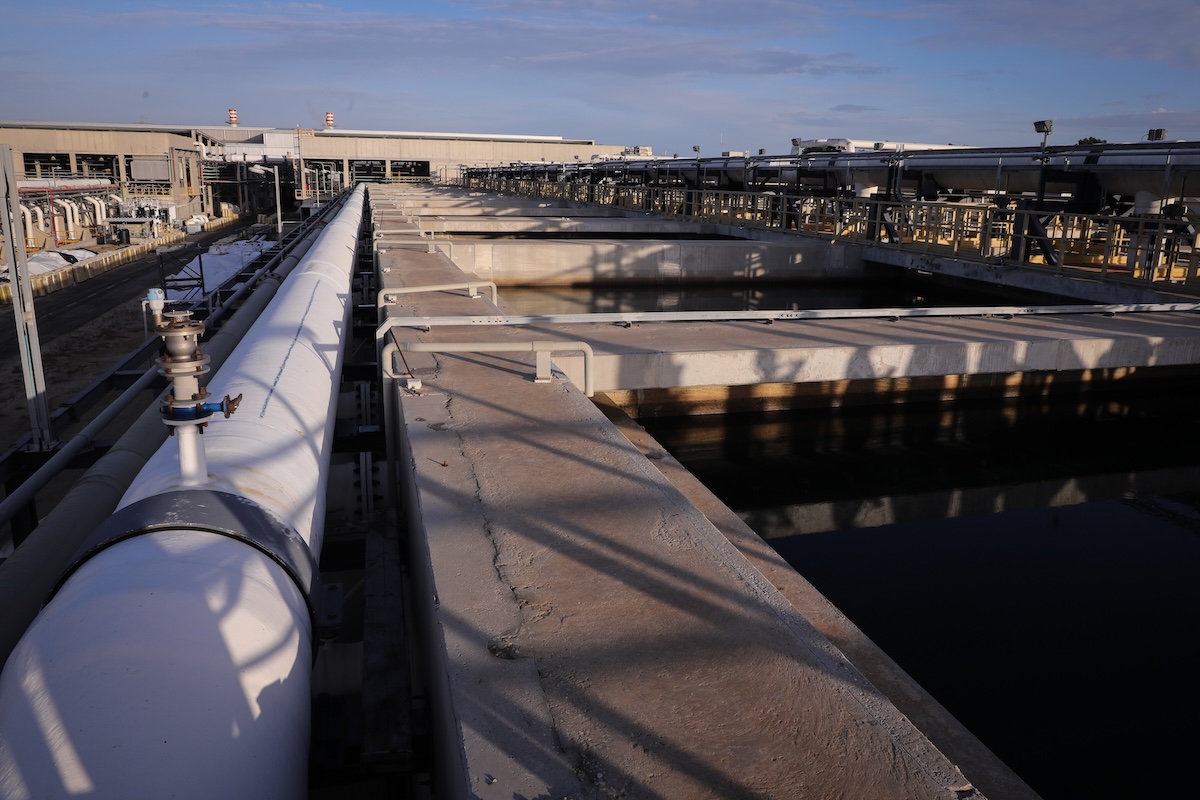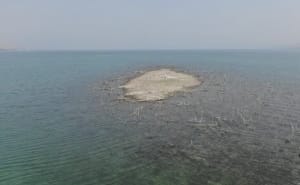Israeli pioneering project seeks to save the Sea of Galilee with desalinated seawater

Israel’s Water Authority has launched a pioneering project to save the Kinneret (Sea of Galilee) – the country’s largest and most important natural freshwater lake – by replenishing it with desalinated seawater. Reportedly, the first project of its kind worldwide, it was initiated in response to years of drought and sharply declining water levels in the lake. The current water level has dropped dangerously close to the so-called “black line,” the point at which experts say water extraction is no longer safe.
Idan Greenbaum, chairman of the Kinneret Cities Association, warned that urgent action is needed to save the lake from drying up.
“The lake is losing a centimeter of water a day in these dry summer months due to natural evaporation. We are eagerly awaiting the inflow and hope that with desalinated water we can guarantee a high lake level for Israelis and tourists alike,” Greenbaum said.
Firas Talhami, head of the Israeli Water Authority’s northern region, revealed that the pioneering idea of saving the lake with desalinated seawater came during a previous severe drought from 2013-2018.
“We dropped below the lower red line and came close to the black line. That’s when experts proposed reversing the National Water Carrier and channeling desalinated water into the lake. Ultimately, this became the chosen solution,” Talhami explained.
At the time, a few years with more rain led to the postponement of the innovative plan. However, the current drought has brought the plan back on the table. The Water Authority plans to begin pumping some 5,000 cubic meters (177 cubic feet) of water per hour by October or November this year. This plan envisions that tens of millions of cubic meters of desalinated water will be pumped into the lake during the autumn and winter months. The overall goal is to stabilize the lake’s water level and thereby secure Israel’s critical freshwater resources.
“This is a historic event that has never been done before anywhere in the world,” Talhami said. “We also considered the ecological impact, and the project will restore the Zalmon stream into a perennial waterway, reviving plant and animal life,” he continued.
Israel, a global leader in water desalination technologies, has launched a pioneering plan to transport desalinated seawater between 100 and 150 kilometers (62 to 93 miles) from coastal plants in cities like Ashdod and Hadera.
The long-term goal, according to Yossi Yaakobi, deputy CEO for engineering and innovation at Israel’s national water company Mekorot, is to expand the system’s pumping capacity to 15,000 cubic meters per hour. The country has reportedly already invested 1 billion shekels (around $300 million) in the “reverse carrier” project, which includes building new pumping stations, constructing large water reservoirs, and upgrading the national water infrastructure.
If the Israeli pilot project with the Sea of Galilee is successful, it could become a blueprint for other water-stressed societies worldwide.
Located between the Mediterranean Sea and arid deserts, Israel has long faced challenges in securing its water resources – challenges it has addressed through innovative technologies. Its advanced desalination infrastructure now meets most of the country’s drinking water needs, significantly reducing reliance on the Sea of Galilee.

In May, the Israeli water company Mekorot revealed that it is expanding the Jewish state’s desalination capability due to current and future droughts.
Riki Mor, head of Corporate Responsibility at Mekorot, linked the current water stress to rising temperatures worldwide. “These scenarios have numerous implications for Israel’s water resources, some of which may even impact our ability to supply water, reduce natural water sources, and affect water quality," he said.

The All Israel News Staff is a team of journalists in Israel.
You might also like to read this:

















